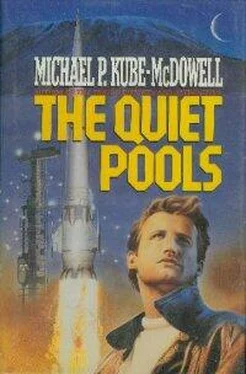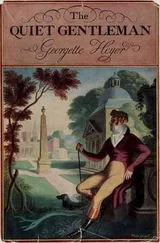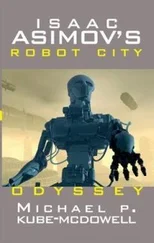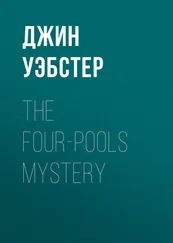“The first I can understand, though you may be disappointed,” she said. “But why do you think that anyone here can answer questions about the Chi Sequence?”
“Because you’re conceiving children here with one parent,” Christopher said. “And it’s a good bet that parthenogenesis requires more than a casual acquaintance with human genetics. If you want to deny it—or you’re obliged to deny it—I guess I understand that. If you really don’t know, I guess someone’ll come bursting in here any moment to stop you from finding out. But let me tell you what I know, and maybe we’ll see where to go from there.”
“I remember the rumors and the jokes. You won’t need to repeat them for my benefit.”
“This is more than rumor,” said Christopher. “This is a matter of record. Angela O called for parthenogenetic research in her Womyn’s Manifesto long before there were any satlands. The year before this station was completed, the Sanctuary Committee—of which Angela O was a member—purchased a copy of the complete data base of the Human Genome Project.
“Four of the five geneticists given grants by the Free Womyn’s Guild to work on problems in parthenogenesis stopped publishing, even privately, after Sanctuary opened. Two came up here openly, with the first wave. It’s a safe bet that the other two came here as well. On top of that, you’ve admitted at least eighteen first-rank geneticists in the last twenty years, including one who was with the Project in Munich for a time.” He shook his head. “If you don’t already know about the Chi Sequence, you at least have the tools to find out.”
“Why does it matter, Christopher?”
He stared at her uncomprehendingly, and she saw in that moment the part of him that had not yet grown. “I have to know who I am. I have to know what to be.”
“No geneticist can tell you,” she said.
“I don’t think you understand how deep this runs,” he said. “It’s the difference between a pointless life and a life with purpose.”
“Who’s judging, Christopher?”
“I am.”
But he was not, she knew. He was looking for a new Authority, a new compass. He did not know how bright was his own fire. He did not trust his own wisdom.
“I know how deep it runs,” Deryn said. “I saw your father crush your confidence a hundred times by withholding his approval, by telling you how you could do better instead of how well you’d done. I remember when you were five and spent an entire afternoon creating what you called a movie—a poster covered with a dozen crayon drawings, complete with titles and credits. You were so proud. I hung it on the kitchen wall.”
“I remember,” Christopher said.
“Do you remember that when William came home, he took it down and told you to put it in your room? That he ripped off a corner in the process, and how you started to cry? That I found your ‘movie’ that night in a corner of your room, torn into pieces and crushed into a ball? That runs deep, too, Christopher.”
His face, sulky and defensive, told her that resistance had set in. “I know about my father. I need to know about me.”
She shook her head. “But you’re asking the wrong question. It isn’t who you are. It’s who you want to be.”
“That’s what I’m trying to find out—who I am at the root. What my part is. What I got from Sharron.”
“What will you do with that knowledge if you get it?”
“Then I’ll know what it will take to make me happy.” He said it with more hope than confidence.
“Will you?” There was more she wanted to say, but he had stopped listening. He so feared the responsibility of choosing for himself—so feared being wrong—he could not hear the inner voice. And that voice mattered far more than hers.
“I never told you about when I met your father,” she said at last.
“Yes, you did.” He looked puzzled. “How you heard about what he was doing from the doctor in Tacoma—and came up to the house to introduce yourself. The Mary Poppins story.”
She smiled. “That was your father’s version—official family history. And it was true, as far as he remembered. So I never contested it, and even repeated it a time or two. But I actually met William years before that. And not only William. Sharron, too.”
He gaped in surprise, his defenses breached. “You did? When?”
“It was a party on Long Beach—there still was a Long Beach then, the big Easter storm was still a few years away. ’55, I think it was. Ten years before I signed the contract to have you.”
“Please tell me about it—”
“I wouldn’t have brought it up if I didn’t mean to,” she said, and patted his hand. “There was a party with a capital p at Carl Walter’s big old place near the north end of the peninsula. I really didn’t belong—so much so that I didn’t know who all those people were, though everyone was Somebody. Carl had those kinds of contacts, all through Oregon and Washington.”
“How did you know him?”
“I was a friend of the family, Carl’s daughter’s favorite tutor, visiting for a few days on a face-to-face. I would as soon have gone up to Ledbetter Point for a few hours, but they wanted to introduce me around.
“William was there with Sharron, being William—being charming and earnest with strangers and neglecting those he could take for granted. Sharron looked as out of place as I felt, so I sat down next to her and we started talking.”
“Did you have anything to talk about?”
Deryn laughed, remembering. “More than we had time to cover. We talked for almost four hours with never a lull. No one knew us, no one bothered us, and we didn’t mind one bit. We understood each other. She felt like someone I already knew. Have you ever had that happen with someone? An acquaintance of mine calls them ‘friendly mirrors’—you see the parts of yourself that you like in them.”
Christopher was sitting forward, eager and hopeful. “Can you remember anything Sharron said?”
“Everything I remembered, I made sure I shared with you at one time or another in the house on B Street. I just let you think it came from your father,” she said. “I remember less now. Sharron told me stories about Lynn-Anne, who had just turned three. About the house they wanted to build in the woods. About the poems she was writing, and about how no one had any use for poetry unless it was set to music. She seemed very glad to have someone to talk to. I didn’t know how to read that then.”
“She was lonely,” Christopher said slowly.
“I think so. For a certain kind of company. For a certain kind of attention.”
“Did she say anything about having more children?”
“I don’t remember so,” Deryn said, slowly shaking her head. “Nothing either way. When William was finished holding court and came to collect her, she introduced me. By that time she felt like a friend. She was living a quiet life, but her heart and her mind were alive. I admired her. It seemed like she had more focus than I did, more purpose. I went away with a lot to think about. I was only five years younger than she, but I felt like a child by comparison.”
“Then later, my father didn’t remember you.”
“No.”
He shook his head. “That’s such an amazing coincidence.”
“No,” she said, smiling at his innocence. “Not coincidence. It goes deeper than that. If I had never had that conversation with Sharron, I would never have become your host. I wasn’t registered with an agency, you know. I had never thought of hosting. And it was only by chance that I even heard of what William was doing—about Sharron’s eggs. There’s the coincidence. Everything else was purely intentional.”
Читать дальше

![Nick Cracknell - The Quiet Apocalypse [= Island Zero]](/books/28041/nick-cracknell-the-quiet-apocalypse-island-zero-thumb.webp)










